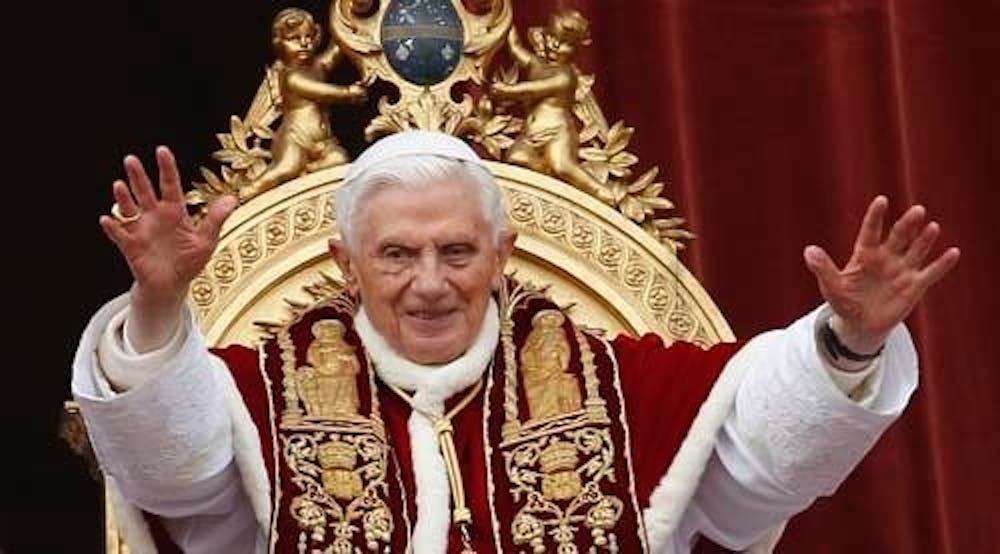Pope Benedict XVI shocked the world by announcing his resignation on Feb. 11, the first pope to do so in 600 years. The Beacon asked Fr. Claude Pomlereau, retired UP Political Science Professer, to we
Pope Benedict XVI, 85, announced his resignation, citing health concerns earlier this month. He is the first pope to do so since the Middle Ages. (Photo courtesy of internetmonk.com)
By Kate Stringer, Staff Writer stringer14@up.edu
Q&A
Q: What were the highlights of Benedict XVI's time as pope?
A: Mostly, missed opportunities. He will be remembered for stepping down as pope. That was not a bold nor an imaginative thing to do. He watched his predecessor fumble and drool for the last ten years of his papacy, and his pride made him resign before that would happen. In the past, we didn›t watch as [a] pope fell apart. We just heard about it after they died.
Q: What has been the Holy Cross priests' reaction to the resignation of Pope Benedict XVI?
A: I cannot speak for other Holy Cross members, brothers or priests. Those in the know expected it; some seemed mildly surprised. A few were delighted. No one was disappointed or shocked.
I assume other popes in the past 600 years have felt physically unfit to continue their role. Why have other popes not made this decision before? Why now?
Benedict lived under a predecessor who was both mentally and physically unable to fulfill his duties in his last years. This must have motivated him to resign.
Q: What does the selection process look like? While it›s been reported that the conclave isn›t meeting until at least March 15, can we expect a new pope by Easter?
A: If they agree on a candidate, we can have a replacement by Easter. If they behave like US politicians, we may go years without a new pope. That would be living proof that the church of Jesus doesn't need a pope to be God's people.
A group of aging, old men, many of whom would be convicted in a civil court for hiding criminal among their clergy - Cardinals Mahoney and Law. They will look for someone who will reflect their narrow, rigid vision of a church.
Q: How can the selection of a new pope impact the lives of college students?
A: The Pope, in his Vatican citadel, is a thousand times removed from the lives of the average student. Nonetheless, he is an outstanding writer of religious books. Do you think many students have read his latest book, "Jesus of Nazareth. The Infancy Narratives?"
Q: Are there speculations about where the new pope will come from? Do you think there's a chance it could be a non-European country?
A: Of course speculations abound. My own experience tells me that here are a few Asian, African, and Latin American cardinals - where the largest Catholic countries are found. Africans will block Latin Americans, Latin Americans will block Africans, and African and Asians will block Americans - or will try to. Enter the 28 Italian cardinals -- more that Africans, Americans and Asians. We'll see. Miracles happen.
Q: Do you think this will start a trend for popes stepping down when they feel they can't continue?
A: Power corrupts, and absolute power corrupts absolutely (Lord Acton). Benedict had a lot of power, but didn't know how to wield it. Rev. Marcial Macias, founder of Legionnaries of Christ was a serial rapist. He should have been turned over to a civil court. Instead, he was quietly sent to a monastery. Benedict claims that he wanted to do this sooner...but did not.
A wise person does at once what a fool does at last. Both do the same thing but at different times (said Lord Acton, again).
Q:What sort of challenges does the new pope face once selected?
A: To restart the theological and ecclesiastical reforms suggested by the Second Vatican Council.








